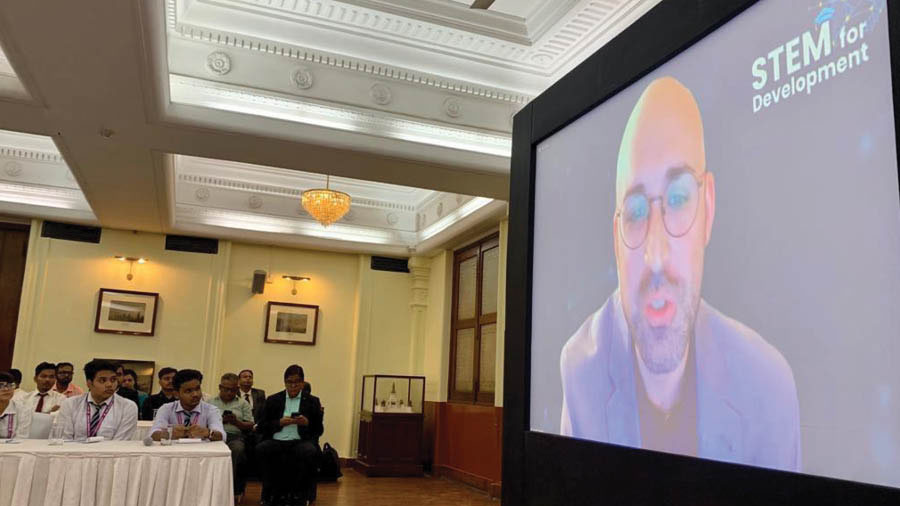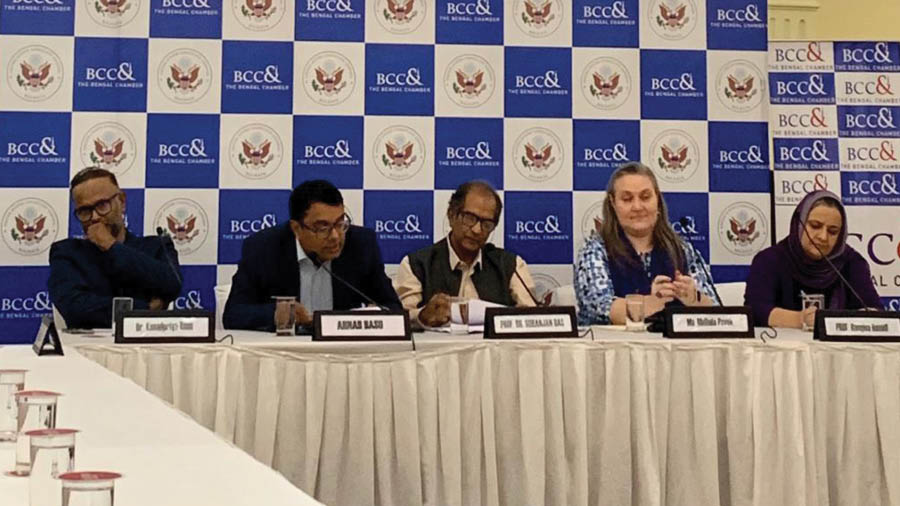The US Consulate Kolkata in collaboration with Bengal Chamber of Commerce and Industry (BCC&I) hosted a panel discussion on STEM education and its scope on November 20.
Dr Daniel B. Schwab, president and founder, STEM for Development was the special guest for the event held at the Bengal Chamber of Commerce and Industry. In his virtual address, he said: “Right now the global community is facing some major existential crises. Unlike what we faced before, we have to address climate change and recall sources of renewable energy. And we have other issues like addressing food security and water scarcity. They are the domain of no single sector or country. And we need the global — south and north to work closely together to address these issues. We need well-trained scientific talent. And more than that, we need someone that knows how to communicate, that knows how to tell the story of their research both to other scientists and the public.”

Daniel B-Schwab addresses the audience virtually Official Press Release
Rangina Hamidi, professor of Practice, Thunderbird School of Global Management, Arizona State University, and Dr Kanadpriya Basu, professor of Practice, Data Science & Leadership Development, Thunderbird School of Global Management, Arizona State University were the other speakers. The panel discussion was moderated by Dr Suranjan Das, vice-chancellor, Adamas University.
Dr Basu spoke about the MoU signed with the West Bengal government to provide entrepreneurs 100 Million Learners Course free of cost (100 Million Learners Initiative).
Closing remarks were delivered by the US Consul General Melinda Pavek where she spoke about the importance of STEM. She said: “It is not about quantity, it is about quality. And we get to quality by changing the process that we use to teach, by engaging students in their hearts, in their minds, in their excitement. And I think we really need to do that differently. It's not just about students that are at the early education stages. It is about the fact that most of us are going to live to be 100 years plus. And most of the students that we are teaching are going to be 120 plus. And that means that over the course of their lifetime, they're not just spending the first 22 or 25 years of their lives in classrooms using that knowledge for the rest of their life.”
An interactive session was also held with the audience. Arnab Basu, president-designate of the Bengal Chamber of Commerce and Industry was also present at the event.
There was also a round table session on ‘Healthcare Value Chain’ with Dr Kingshuk Sinha, chair and professor, supply chain and operations department and Elmer L. Anderen chair in sustainable supply chain, Carlson School of Management, University of Minnesota.
The audience comprised not only academicians but also people from the business and industry. Discussion during the event focused on how educators could not only improve the method of teaching STEM to the students, but also how they might reach the many children around the world who lack access to quality STEM education.
